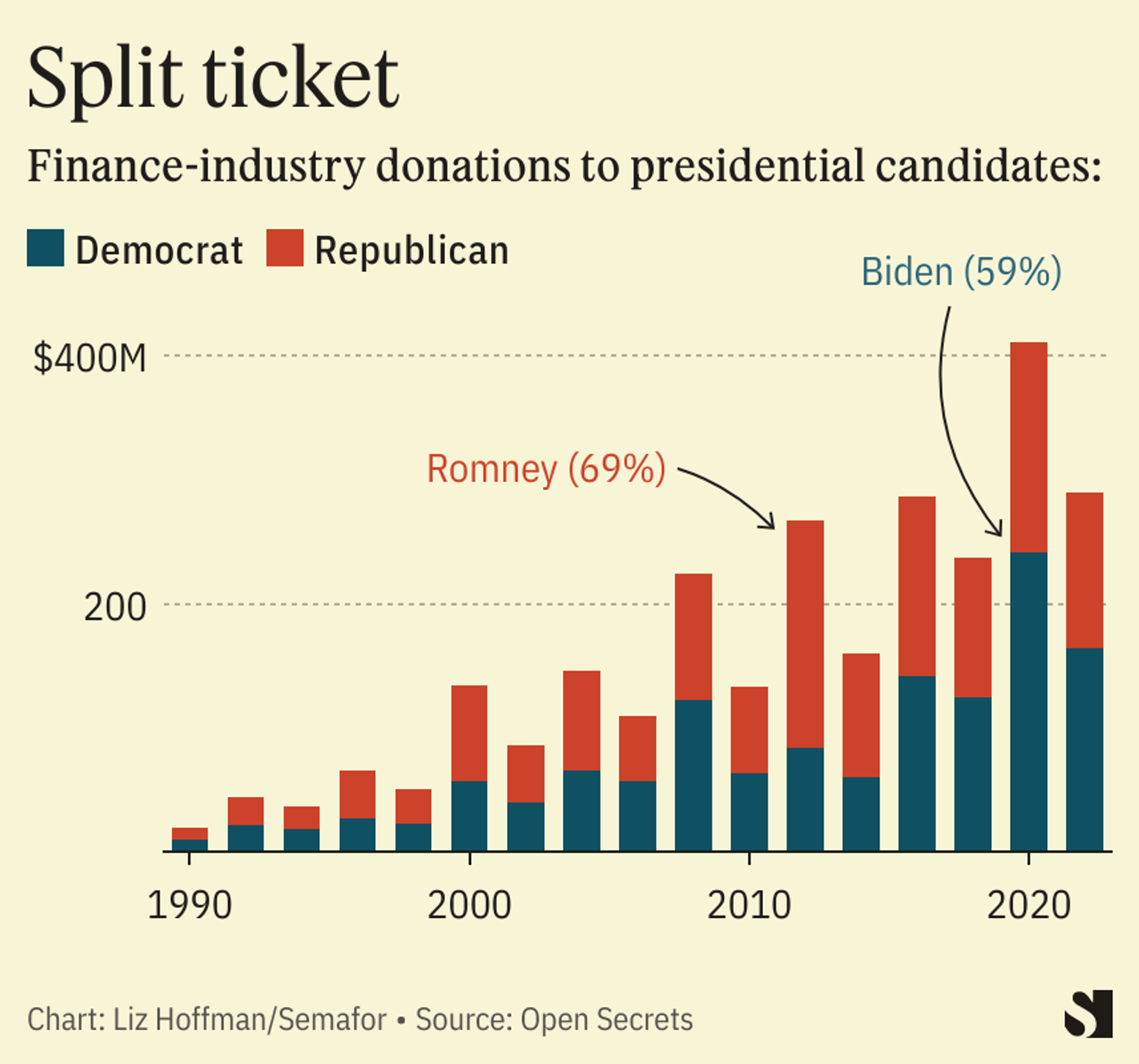The News
Seventy-four days before the Iowa caucuses, the biggest donor set in America is still undecided on the Republican presidential field, leaving millions up for grabs in what is expected to be the most expensive election ever.
While Democratic backers like George Soros have targeted their giving to the Biden Victory Fund, financiers on the other side of the aisle are still casting about for an alternative to Donald Trump, switching horses and hedging their bets, mostly with little real enthusiasm. Some have kept their millions on the sidelines entirely, waiting to see if anyone can mount a surprise showing in Iowa.
“Big donors are trying to figure out what’s going to happen, rather than make something happen,” said Mike DuHaime, a Republican strategist who guided Chris Christie’s governors races. “They need to stop playing pundit and start playing advocate. Debating over who could beat Trump just continues to delay and delay and that only advantages Trump.”
In the third fundraising quarter, no Trump rival surpassed the $13.4 million that Jeb Bush raised over the same period eight years ago – seen at the time as a disappointing haul.
With corporate political action committees making up a smaller fraction of total political donations, candidates lobby heavily for backers among the 1%. The crowded Republican lineup this year makes the competition even more intense.

Cliff Asness and Stanley Druckenmiller have both cut personal checks to Tim Scott and Nikki Haley, and given $250,000 to Christie’s affiliated PAC. Paul Tudor Jones has donated the maximum amount allowed to both Ron DeSantis and Christie. Gary Cohn, former White House economic adviser and Tim Scott booster, is hosting a fundraiser for Nikki Haley in New York later this month. Bill Ackman, one of Vivek Ramaswamy’s earliest and loudest supporters, has maxed out to Christie, too.
Many are still hoping that Virginia Gov. Glenn Youngkin — one of their own, as a former Carlyle CEO — will jump in the race. “The money would be there” for a Youngkin run, billionaire Tom Peterffy told CBS in September, though at this point Youngkin would face a scramble to get enough individual donors to make the next debate.
Peterffy’s own allegiances have bounced around: The Interactive Brokers founder backed off his vocal support for DeSantis in the spring, citing the Florida governor’s stance on “abortion and book-banning.”
“My pitch is pick who you’d think would be the best president and try to make them win,” DuHaime said. “Don’t be Tony Romo up in the booth telling them what play they should have run.”
In this article:
Liz’s view
Republican Wall Street donors spent millions of dollars trying to keep Donald Trump from being their party’s nominee in 2016. It didn’t work, and many are resigned to the former president winning the primary again. Trump’s lead over DeSantis has tripled since April, according to Wall Street Journal polls.
More broadly, many are mourning the breakup of big business and the Republican party. Ten years ago, Mitt Romney represented the fiscal middle. In 2016, donors who work in the finance or real-estate industry put their money behind Jeb Bush ($62 million) and Marco Rubio ($35 million). But populism is running hot and a red-meat issue like corporate “wokeism” has put more room between GOP donors and candidates.
Support for Scott seems to be waning, though it’s unclear how deep it ever ran. Donating to his campaign was a no-lose proposition for finance executives: Scott is the ranking member of the Senate Banking Committee, and set to be its chairman if Republicans win back the chamber.
Donors I talk to point to Haley’s foreign-policy chops, which have only gotten more relevant in recent weeks as global events continue to shape business. She also scored a private meeting in Las Vegas with billionaire and Israel hawk Miriam Adelson, Reuters reported.
DuHaime said DeSantis has spent eight times per day what Christie has and three times what Haley has. Speaking in terms Wall Street understands, he said: “The ROI for DeSantis has been disastrous — Jeb Bush levels of bad.”
Room for Disagreement
Deep-pocketed donors are arguably less important today, especially early on as candidates have scrambled to get enough individual donors to make the debate stage. Eleven congressional candidates in 2022 raised more than half of their money from small donors, up from just five in 2008.
Expensive ad campaigns may matter later, but they don’t right now: A PAC for Scott, who’s sitting on the largest cash pile of any candidate other than Trump, recently nixed its fall ad slate because “the electorate isn’t focused.”
Even in finance’s backyard of New York, the left-leaning Brennan Center for Justice estimates that small donors’ financial power would increase from 6% to 41% of all campaign funds under the state’s new matching-funds program. And Wall Street carries a stark reminder from one of their own: Michael Bloomberg spent $1 billion on a 100-day campaign to win a single primary, in American Samoa.
Notable
- Billionaires bemoan Trump-Biden rematch at “Carnivore’s Ball” — WSJ
